St Lucia – the land of sun, sea and unspoilt landscapes; a country that attracts millions of visitors from around the world each year for relaxing summer escapes. However, there is more to this Caribbean island than soft sands and tropical waters. This is a diverse and vibrant country shaped by centuries of dynamic history, and this is a legacy that you can experience with every sense when on holiday in St Lucia. As travel blogger Eileen Ogintz from Taking the Kids points out: “I love that there is so much more to St Lucia than the beaches. Though there is that — there is also the culture, the rainforest, the Pitons and, of course, the locals!”
Walking along the streets and shores, the rich culture of this nation will welcome you, in the sight of colourful houses lining the luscious rainforest hills, in the smell of creole salt fish cooking on barbeques, and, of course, in the sounds of Lucian music carried by the coastal winds. It is this final element that often surprises visitors to St Lucia, who are often delighted when they step out into the towns of Castries, Soufrière or Gros Islet to find infectious music played from café speakers and often performed live at one of the island’s regular street parties.
Whether you are a fan of Caribbean music genres or know little beyond the Marleys and Maytals, it is undeniable that one of the best ways to get a feel for the Caribbean is through its music. Read on to discover the fascinating history of Lucian music and find out where you can enjoy incredible live music in St Lucia.
Contents:
St Lucian music history
St Lucian music genres
Where to find music in St Lucia
Experience the sounds of St Lucia
Notable St Lucian bands and musicians
Music festivals in St Lucia
Lucian music
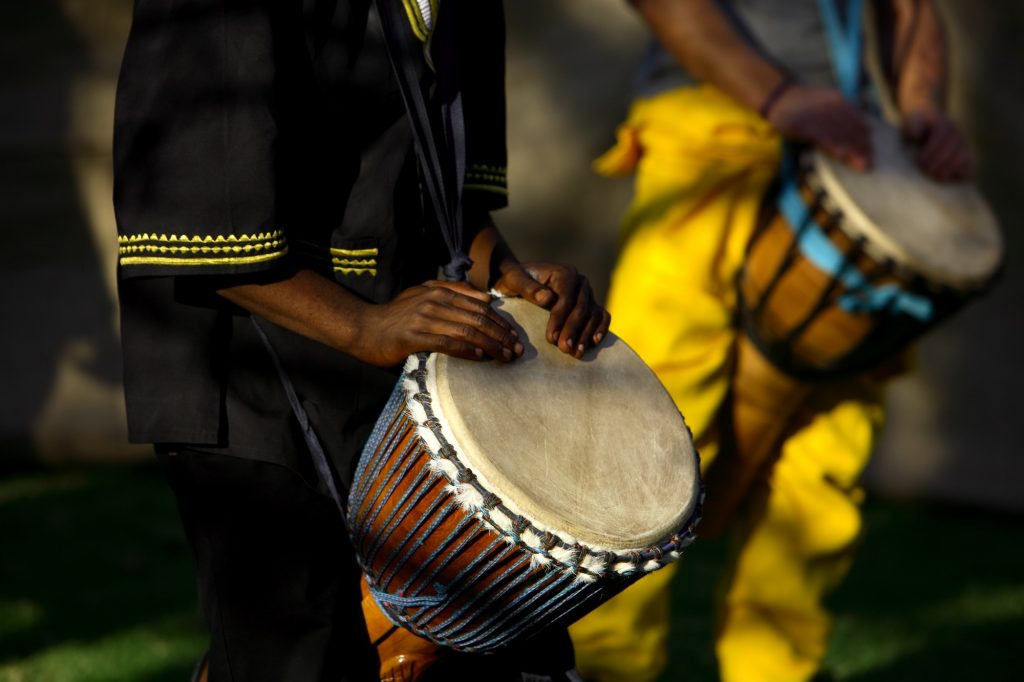
Music in St Lucia stems from similar pan-Caribbean roots as the styles played in other nations throughout the region. Many Caribbean genres are the product of creolisation – the influences of African song brought to the region with West African slaves were met with European influences from colonial societies, mixing together to create various dynamic, multi-faceted styles. Today, instruments such as the banjo and the six-stringed cuatro are iconic to Lucian folk music, particularly the four-stringed banjo, known as a bwa poye. However, the country has gone through various musical developments, and now artists in the area play in any number of styles, from calypso and Lucian folk to hip hop and even country.
Whilst Caribbean music as a phenomenon has gone global, influencing musicians around the world, the Lucian music industry itself remains on a relatively small scale. The country has very few recording studios, and for previous decades the bootlegging of cassettes and CDs was the prime form of business in the industry. However, in recent years, organisations such as the St Lucia Oral History Project and the St Lucia Folk Research Centre have begun investing in local musicians, funding their recording and touring ventures both domestically and abroad. St Lucia is also home to various radio stations, including Radio St. Lucia and Radio Caribbean International. These networks broadcast a variety of popular music, as well as programmes about Lucian culture.
Yet, as the recorded music scene in the country grows, live performance remains at the heart of the island’s culture. Every day you will be able to enjoy street performances, club nights and dances in a plethora of the country’s traditional and modern styles.
Jesse Serwer is a music journalist who has written for the likes of Rolling Stone, Billboard and the Washington Post on hip hop and dancehall culture. He is now Editor in Chief of LargeUp, a Caribbean culture and lifestyle magazine dedicated to showcasing the best music in the region, and encouraging people to discover how travel and music blend perfectly in the Caribbean. He explains that, at any idyllic Caribbean beach, there will be music around the corner – not just being played, but being made. This budding music scene covers various styles, from traditional Caribbean genres to ones you might more readily expect to find elsewhere…
Steel Pan
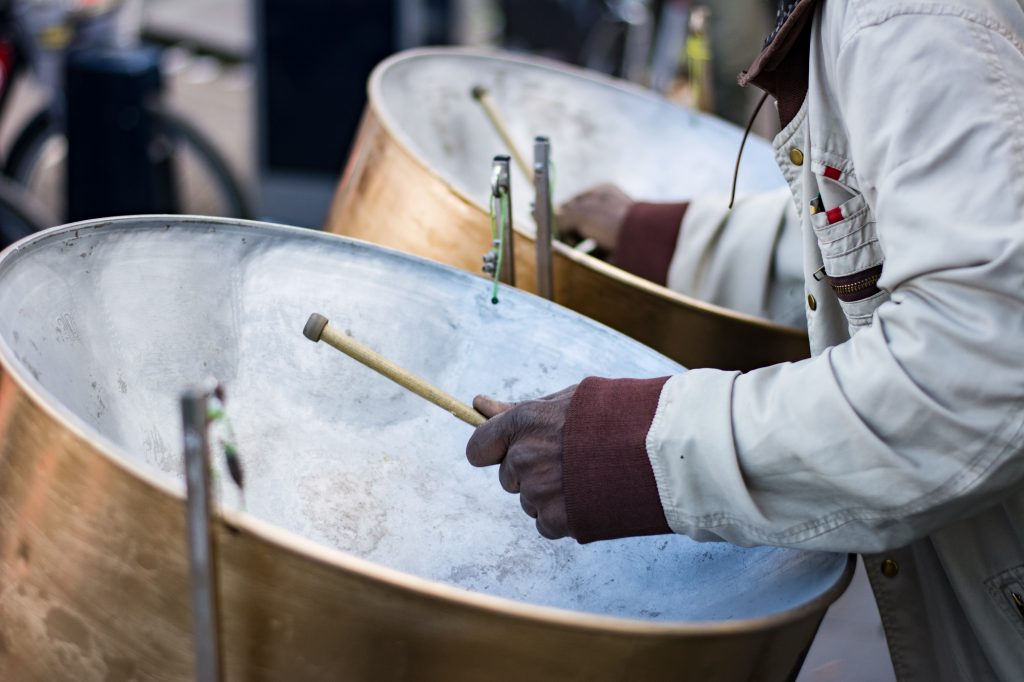
When African slaves were brought to the Caribbean centuries ago, people soon began seeking ways to continue performing their traditional music, from work songs to ceremonial tunes. Stick-fighting performances and percussion music were practised by slaves in Trinidad, before this was banned in 1880. Performers began hitting bamboo sticks to create rhythms, which were also banned, before, in 1937 in Laventille, Trinidadians developed the beginnings of steelpan bands, repurposing frying pans, dustbin lids and oil drums to play the beat that is at the heart of the music. Their inventiveness is now heralded as symbolic of the creative and determined Caribbean spirit. Eventually accepted and incorporated into the multicultural Caribbean carnival, their instruments remain similar today in the post-independence Caribbean.
Many drums of different sizes are used by pannists to provide different pitched sounds making up the steelpan orchestra. The lead pannist plays on a high-pitched pan, and is accompanied by mid-range alto harmonies and low bass notes. Musicians play in various styles, from Caribbean standards to calypso, reggae, soca and pop. In St Lucia, as on other islands, this is a serious art form, with rival bands competing for the top prize each year during Carnival.
Calypso
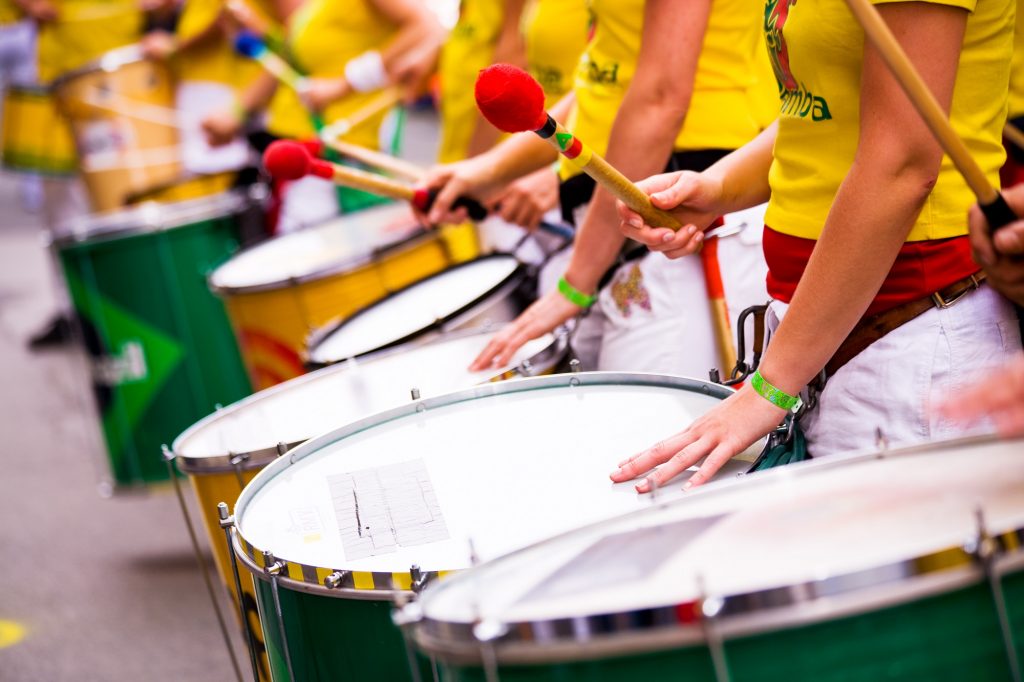
From steelpan music rose the calypso, a musical style which has become nothing short of formative of Caribbean culture at large. This musical style found its way to St Lucia in the 1940s, again transported from Trinidad. Calypso’s main component is its lyrics, which derive largely from the West African practice of ‘signifying’ – a vernacular form of wordplay that exploits the distance between the literal meanings of a phrase and its connotations. This transformed into what became known as ‘robber-talk’: an eloquent form of social commentary employing wordplay and parody making serious issues digestible by audiences. Accompanying the witty wordsmiths is plenty of fast-paced percussion, guitars, keyboards and horns that makes calypso an incredibly danceable genre.
Although the music sounds upbeat, its danceable rhythms and melodies are contrasted by incisive political lyrics, which were often used to criticise governments and colonial regimes. Many scholars of Caribbean music have stressed the importance of calypso to Caribbean culture. Gordon Rohlehr, in his essay “Calypso and Caribbean Identity”, states that calypso music constitutes “the first narratives of the grass-roots people of these Caribbean islands”, whereas Jocelyne Guilbault calls calypso the primary way modern Lucians express social commentary. Today in St Lucia, calypso is associated with Carnival in late February, where competitions are held to crown a Calypso King or Queen.
Soca
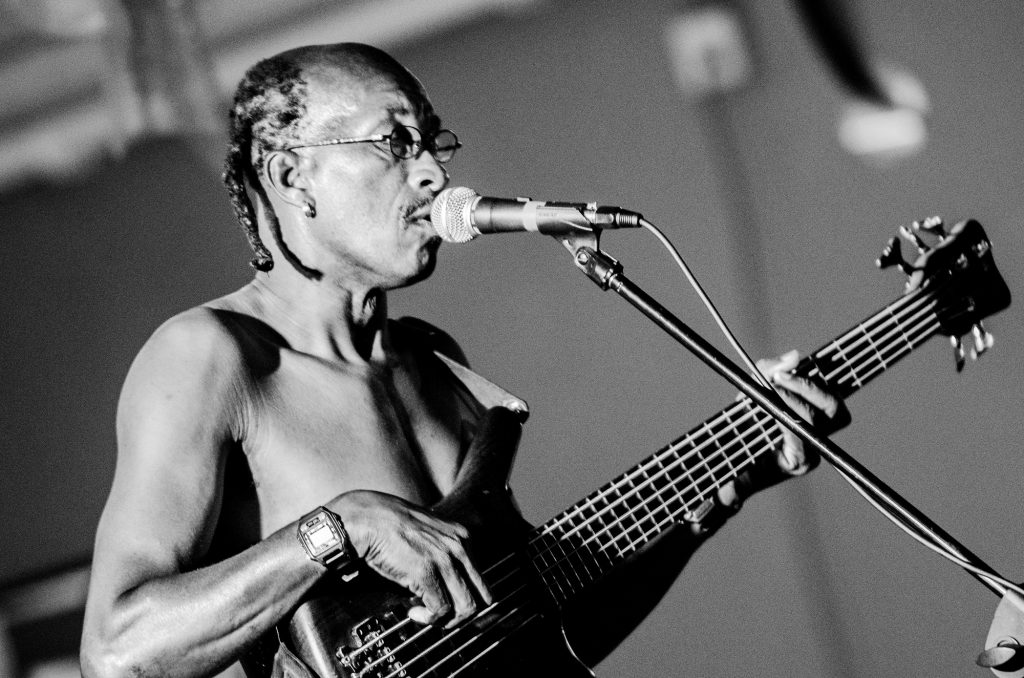
Soca musician David Edwards
Soca is most simply described as the music of dance. Its driving beats are easy to keep up with, and are guaranteed to keep any street party crowd jumping until dawn. Originally, however, soca was a marginalised form, created by Garfield Blackman – more commonly known as ‘Lord Shorty’ in a bid to fuse calypso with elements of the musical traditions of the Indian minority in Trinidad and Tobago. This Indo-Caribbean fusion created soca music, a name that translates to ‘soul of calypso’. However, the sound of traditional calypso was developed with the incorporation of Indian instruments such as the dholak (two-headed drum), tabla (small bongo-like drums) and dhantal (a steel rod percussive piece).
There are now various sub-genres of soca, such as ‘bashment soca’, which appeals to dancehall party crowds, ‘parang soca’, a style sung in Spanish and inflected with Venezuelan and Latin musical styles, and steel band soca. Jesse Serwer from LargeUp notes that zouk is possibly the most common fdescribes how, in 2016, a new form of soca hit the mainstream, taking Lucian music to a wide audience. Soca kuduro, Jesse explains, is a mix of soca and a form of music called kuduro which originated from the Portuguese-speaking areas of Africa such as Angola. Thanks to the Internet, he says, the style travelled to St Lucia, and was responsible for one of the country’s biggest songs of the year – “Bend Dong” (‘bend down’ as it would be said in a Lucian accent) by Motto, a Lucian musician and producer currently residing in New York. The name of the song should give some indication of the themes in many soca songs – encouraging girls to dance sensually for the (usually) male singer.
Jwé
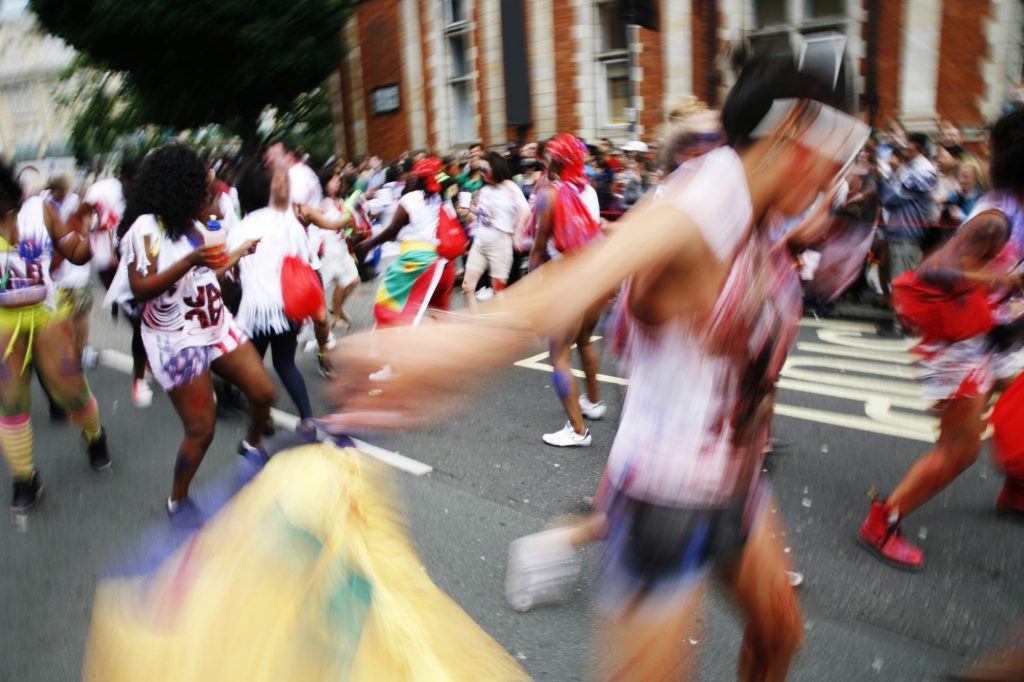
Using similar lyrical tactics to those of calypsonian vocalists, jwé is an informal form of Lucian folk music, based around performers improvising humorous, topical lyrics. Often performed at dances, wakes and other social events, jwé provides a platform for Lucian artists to flaunt their verbal skills, and communicate social and political commentaries in an indirect, comedic manner.
Antiphonal styles are also common, making any jwé a truly participatory affair. Various performers will jump in and have their say, interacting with the audience and the music in a call-and-response format. Elements of jwé have now entered day-to-day Lucian culture, such as the use of lang dévivé – intentionally saying the opposite of what is meant in a satirical way. The practice of using music as a form of political commentary is, however, evident in much of Lucian music. Jesse describes how, in 2016, the St Lucia elections elicited tracks critiquing each candidate running for presidency. However, through keeping their dance track elements, the songs gained popularity, despite their potentially-controversial content.
Reggae
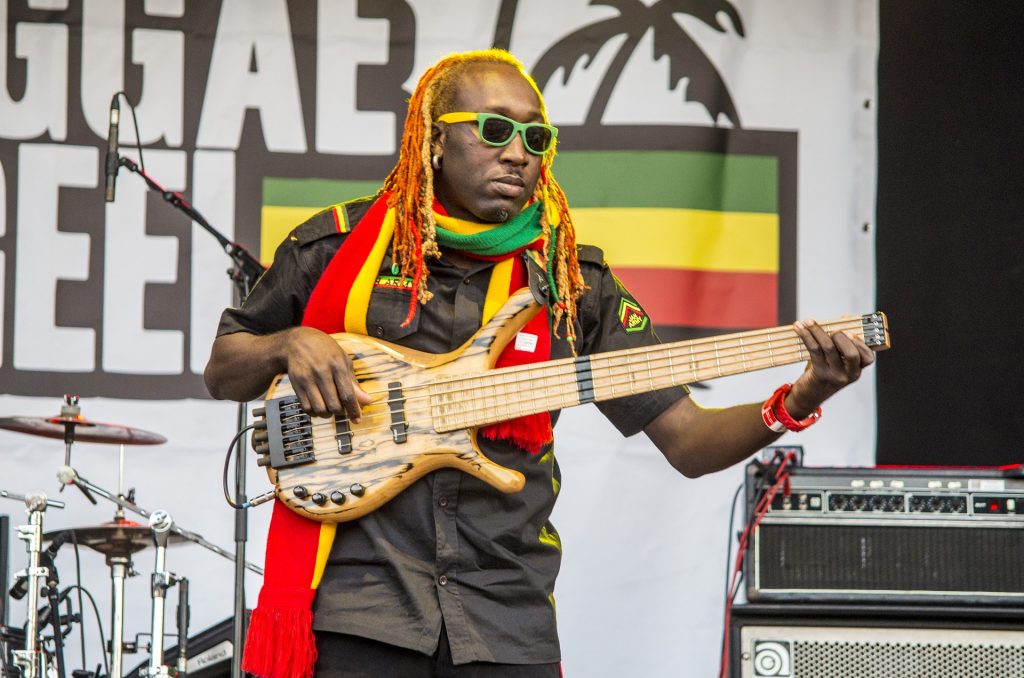
Reggae of course stems from Jamaica, and is probably the best-known form of music that the Caribbean has produced. Made internationally famous by the late Bob Marley, reggae is a very popular music style in St Lucia today, championed by artists such as Taj Weekes. The term ‘reggae’ was first used by Toots and the Maytals in their 1968 single “Do the Reggay”, but it has since developed into a global commodity and even a way of life. Reggae is recognisable for its positive, spiritual lyrics, which often speak of a return to Africa as the ‘homeland’ of Afro-Caribbean communities, hence the term ‘roots’ reggae. Its syncopated rhythms, simple yet catchy melodies and uplifting call-and-response structures make reggae the perfect music for social gatherings. You may often find groups of friends listening to or playing reggae music as they talk or share an evening drink.
Dancehall

Originating in Jamaica, dancehall, or ‘dub’ as it is otherwise known, developed in the 1970s and quickly infiltrated neighbouring countries in the Caribbean, including St Lucia. Dancehall gets its name quite literally from its original location – first performed in the dance halls of Jamaica, where MCs sang or spoke rhythmically over the music, crafting intelligent lyrics with rhyme and suggestive connotations. The music was initially a more stripped-back take on reggae, but as digital music production grew, dancehall tracks became increasingly fast-paced, eventually evolving into an up tempo high style that inspires similar dance moves as those performed to soca music.
Today, various global artists are influenced by the dancehall style, from Rihanna and Drake to Elephant Man. Attend any dance or club night and you are bound to find yourself dancing to a mixture of classic and contemporary dancehall tracks.
Country and Western
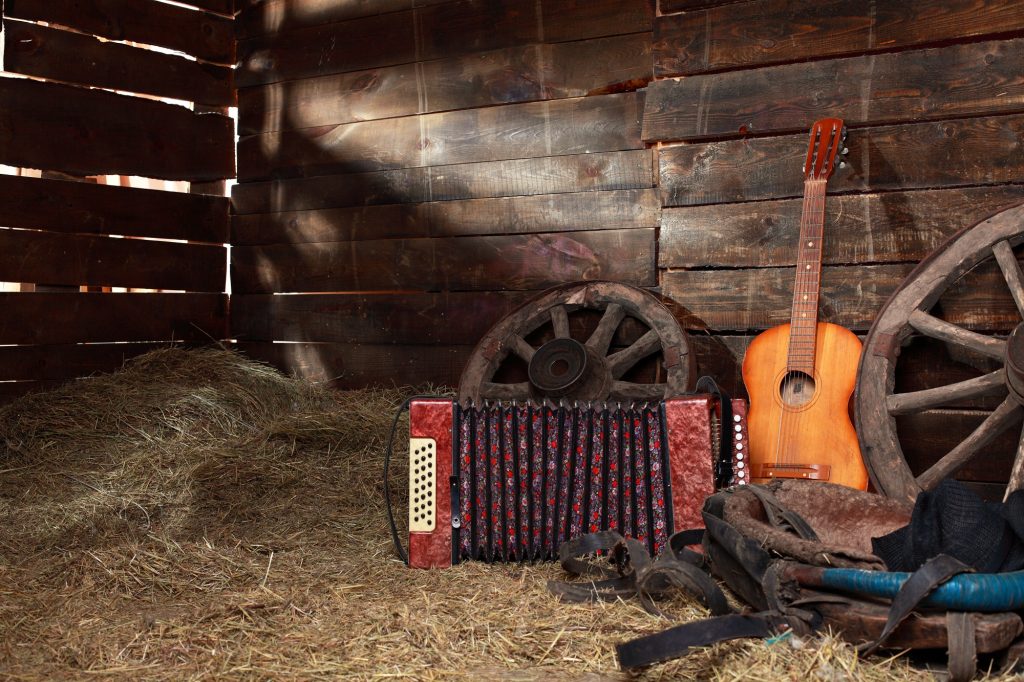
Imagine the music you would least expect to hear in St Lucia, and it might well be country and western. However, the island actually nurtures a thriving country scene. As Noisey explains, this is because, during the Second World War, US soldiers brought their records across to the two military bases they had on the island. Upon playing their music, they found that the western beats were surprisingly compatible with the traditional Lucian folk dance, the kwadril, and so soon these new American tracks caught on among locals, too.
Now, as Jesse explains, country and western music is popular across the English-speaking Caribbean. According to Noisey, on the island, “Prio’s Palace is where the western kids go to get their kicks. People of all ages are rum-wasted and grinding a foot-swivel with ballet-accuracy through the floorboards. Screwdriver-toes, grooving country.” St. Lucia now also boasts its own home-grown country and western singers, who you might just see gigging at Prio’s.
Experience the sounds of St Lucia
If you can’t wait for your St Lucia holiday and want to get a taste of the island’s music before you go, simply listen to our playlist of some of the biggest musicians in the country and take a look around these photo circles of some beautiful spots across the island.
Jalouise dock
Palmiste, Soufriere
Soufriere Beach
Reduit Beach
Canaries dock
Notable Lucian bands and musicians
Whilst the island cannot boast global music juggernauts like Bob Marley or the Mighty Sparrow, there are certainly some fantastic musicians who call St Lucia home. From world-famous acts such as soca artist Ricky T to locally-renowned acts including Skip Monday, Taj Weekes and Rob ‘Zii’ Taylor, there are plenty of active musicians to catch in action during your holiday.
Ricky T
Ricky T is one of the most famous musicians in St Lucia, having branched out onto the global music scene with his infectious tunes. As International Soca Monarch explains: “His songs are from a chosen few that were able to cross borders and break boundaries by becoming mega hits outside St. Lucia.” Originally a dancehall DJ performing at local events and night clubs, his powerful vocals and witty lyrics soon caught the attention of the public both on the island and beyond.
His popular hits including “Container” (2006) and “Pressure Boom” (2007) feature on radio stations worldwide, but his newest song, “Sweet St Lucia” is a return to his roots, celebrating everything that makes his home country so special. In 2016, Ricky T’s song “Freaky Gals” became in international hit – not just in carnivals within the Caribbean, but in carnivals in Miami and even Notting Hill. LargeUp’s Jesse explains that, as the biggest artist in the country, Ricky T’s music will be playing anywhere in St Lucia that features current tracks.
The Mecca
Formerly known as Young Mecca, this musician was one of the first Lucian musicians to stray dramatically from soca, calypso and jazz styles towards more urban forms. Born in Laborie, The Mecca began performing dancehall tracks by the likes of Red Rat at a young age, before going on to perform hip hop covers by Puff Daddy, Biggie Smalls and others. He has had numerous chart-topping hits, including “Yes Garcon” and “Impossible”, which stayed at number one on local charts for twelve consecutive weeks. He was crowned Youthstar 2009, and between 2011 and 2013 embarked upon a project to release a new single every Monday for a year. This gained him significant press attention internationally, and since, his 2014 single “Zoom Zoom” has been featured everywhere from ABC to Netflix.
Teddyson John
Teddyson John is a St Lucian musician who has become renowned on the country’s music scene for his fresh fusion of soca and jazz styles. This is a style that has earned him gigs all over the world, from Miami, New York and Los Angeles to Barbados and even Paris. As Dazzle magazine explains, Teddyson’s first song to be released was actually a gospel track titled “Sweeter”. His musical career began performing in churches, before he wowed crowds at the Groovy Soca Monarch and Power Soca Monarch competitions, having won the crown twice since 2007. Most recently, he received the prestigious award for Best Soca/Calypso Artist at the 2016 International World and Reggae Music Awards. If you visit the fishing village of Gros Islet in the north, you will find the thriving community that originally inspired Teddyson’s upbeat tunes, including the hit single “Allez”.
Skip Monday
If you’re looking for something a little more familiar, Skip Monday are the perfect band to catch in St Lucia. The band explain:
“As if being a musician wasn’t enough of a challenge, Skip Monday decided to up the ante and follow a path outside the mainstream on tiny St. Lucia. There aren’t many bands that combine soulful vocals, lead violin, acoustic-electric guitar, bass and drums as effectively as they do. The foundation of their genre is unapologetically rock based with threads of blues, pop, RnB, funk and even country thrown in for good measure.”
Each Skip Monday performance is entirely live; no synths, drum machines or keyboards for that matter. The band’s original song writing and arrangements are seamlessly woven into their cover repertoire, from Adele to Metallica, that is as varied and dynamic as it is entertaining. The band were recently selected to participate in an international musical fusion project hosted by Club One New Releases, which will take them to Trinidad and Canada, where they will pair up with Canadian band Gordie Mackeeman and his Rhythm Boys to write two pieces of music.
Skip Monday are also working on the second of their “Sunset Concert Series”, where they plan to “invite their fans to enjoy a beautiful island sunset with live music, wine and delicious bouyon (local soup).” The entire show will be recorded for placement on their social media, and the venue will be announced by summer 2017, so stay tuned! The band has participated in several festivals over the years, opening for the likes of Maxi Priest, Shaggy, Third World, Barrington Levy and Karen Briggs. They currently feature regularly at St James Club Morgan Bay, The Body Holiday Le Sport, Delirius and Boardwalk Bar in Rodney Bay.
Taj Weekes
“Let your vibes be high and your message mighty”, reads the motto of Lucian musician, humanitarian and poet Taj Weekes. The frontman of band Adowa, Taj has released five acclaimed albums of experimental reggae music. Adowa’s music is influenced by its members’ diverse backgrounds – a soca bassist from Dominica, a classically-trained Barbadian keyboardist, a Jamaican reggae drummer, a Trinidadian guitarist – it is a pan-Caribbean fusion of fresh, inventive styles. Taj’s skilful ability to build tension and drama through the medium of reggae styles is evident in songs such as “Here I Stand”, whereas his incisive lyrics are rousing on “Let Your Voice be as Loud as your Silence.”
Rob ‘Zii’ Taylor
A modern crossover artist of true prowess, Rob ‘Zii’ Taylor is a Lucian artist known for seamlessly blending pop, reggae and jazz. Composing and performing his unique original songs at venues across the island, Zii and his saxophone are sure to impress any audience. Rob tells us, “My music career in St Lucia has spanned over two decades to date, playing the sax and singing for the most part. During this time I performed with a leading reggae band Amate for four years, having the chance to open for the biggest names in the Jamaican reggae community.”
He describes:
“One of the highlights of my career was touring with Ky-mani Marley, son of Bob, in the U.S. which inspired me to return to St Lucia after my daughter was born to write and record my first album, Rise Up. I gained quite a bit of notoriety from the release of this album and music videos and eventually followed up with a second album, Destiny, recording half of this album in Jamaica and working with some very established names there.”
Rob’s relaxed island sounds have impressed audiences as esteemed as Her Majesty the Queen of England at her Golden Jubilee celebrations. A mix of reggae, hip hop, jazz, funk and creole, his album Rise Up saw him catapulted into the spotlight, performing at the St Lucia Jazz Festival. His track “The Calling” even won Zii a St Lucia Music Award in 2008 for Instrumentalist of the Year.
Sesenne Descartes
Sesenne Descartes was a Lucian cultural icon who championed the use of the native patois in her songs during a time when colonial authorities had banned its use. Performing from 1922 until her death in 2010, Sesenne was dubbed St Lucia’s ‘Queen of Culture’, and inducted into the Caribbean Broadcasting Union Music Hall of Fame. Sesenne’s music career commenced when she was chosen to be the chantwelle (lead singer) of the famous La Rose group in the Micoud area. She was ‘discovered’ by a cultural preservationist early in her career, which led to her being recorded by an American anthropologist. Her performances were renowned for her ability to sing in seven different pitches in synchrony, and to improvise to dramatic effect. So loved is her music that Novel Laureate Derek Walcott wrote in his famous poem, “Homecoming”: “my country heart, I am not home ’till Sesenne sings, a voice with wood smoke and ground-doves in it…”
Luther François
Widely considered the ‘Godfather of St Lucian jazz’, Luther François has enjoyed a prolific career as leader as the West Indies Jazz Band. Born in Castries in 1952, François has become a jazz icon worldwide. His distinctly Caribbean style is evident in every piece he leads – as he tells Caribbean Beat, the calypso beat is unmistakable even in renditions of American jazz classics: “We’ve taken ‘Mood Indigo’ for example, and transformed it into something that, if it was not known that Duke Ellington wrote it, might have been a Caribbean piece.” Influenced by genres as diverse as folk, pop, gospel, calypso and jazz, his music is symbolic of St Lucia, particularly as a key player in establishing the country’s jazz festival, Kreol magazine explains. In the mid-1980s, François was even commissioned by Derek Walcott to write and record music for his play, The Haitian Earth. Today, François is a respected composer, teacher and performer whose music can be enjoyed at a wide variety of venues across the island.
Ronald ‘Boo’ Hinkson
A Lucian jazz guitarist of high esteem, Ronald ‘Boo’ Hinkson claims to have been “raised on a diet of Ellington, Davis, and Coltrane.” Formerly the founder of popular group the Tu-Tones, he has performed everywhere from the bars of St Lucia to the Superbowl XIII. The influence of his much-loved jazz masters is interwoven throughout his contemporary jazz and soca music, which he has performed for the likes of former President Bill Clinton. His signature sounds, inflected with unmistakable guitar prowess, can be heard on the songs “Beyond” and “Shades”, or – better still – at one of his many local performances.
Rameau Poleon
Joseph ‘Rameau’ Poleon, known by locals as ‘Papa Kilte’, is a folk fiddler born in Vieux Fort. Having won numerous awards in the country for his incredible violin skills, and performed around the world with countless notable musicians, he became the recipient of the silver St Lucia Medal of Merit in 2000. Rameau’s music features influences from moulala and la comette, musical styles based on the French minuet, as well as many others, comma and other indigenous Creole folk styles of the Caribbean.
Music festivals and events in St Lucia
Aside from the nightly performances you can catch in bars and the performances of touring Lucian artists, there are several opportunities to immerse yourself in musical events in St Lucia.
Lisa from Girl about the Globe loved her time visiting the country, and explains:
“There is a big creole culture here and if you visit in October you’ll be on the island for Creole Heritage month when folklore and indigenous events are held. If you visit outside of October you can still experience the music of the island as the locals gather for street parties around the island with local music and plenty of island cuisine.”
Here are a few of the most famous music festivals to enjoy during your holiday to St Lucia.
St Lucia Carnival
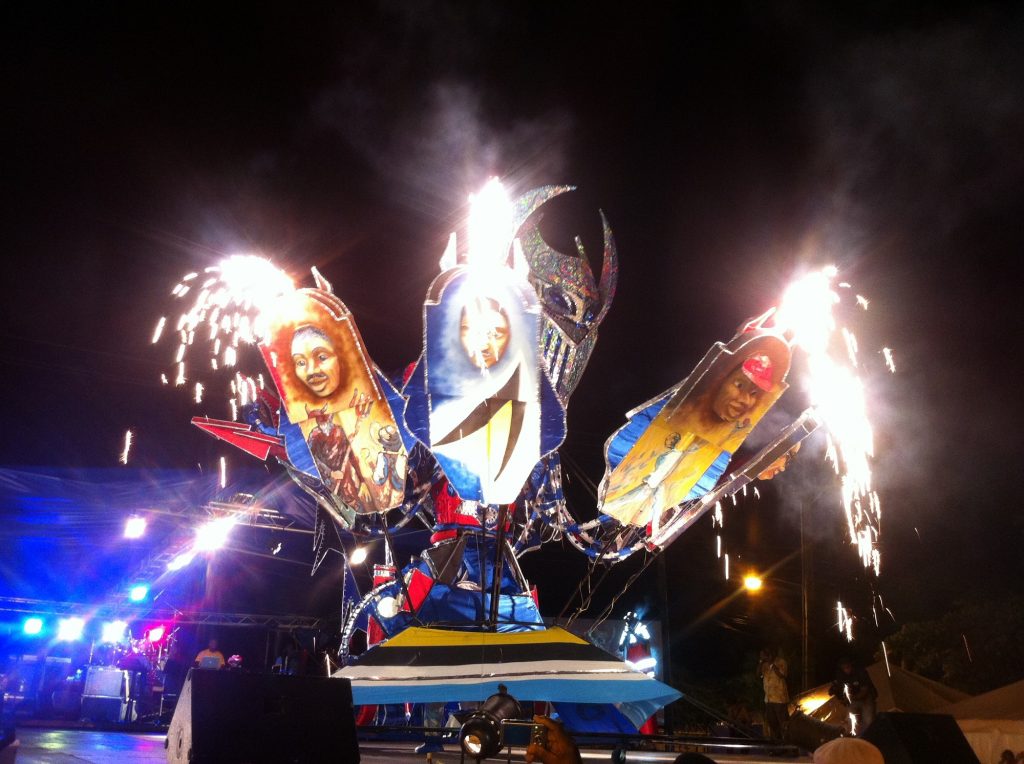
St Lucia Carnival 2013
Caribbean carnival is iconic the world-round, and St Lucia Carnival certainly earns its renown. Between June 24th and July 18th this year, various festivities will be taking off to celebrate the season. From Calypso Monarch contests to the “We Ting” Kids’ Line Jam and finally the pageant, where bands will parade down the Vide Bouteille Highway in Castries playing their best songs and strutting their finest moves for onlookers to enjoy. This is a true Caribbean experience not to be missed if you are in the area, and is only minutes away from luxurious accommodation such as St James’s Club in Morgan Bay.
St Lucia Jazz Festival
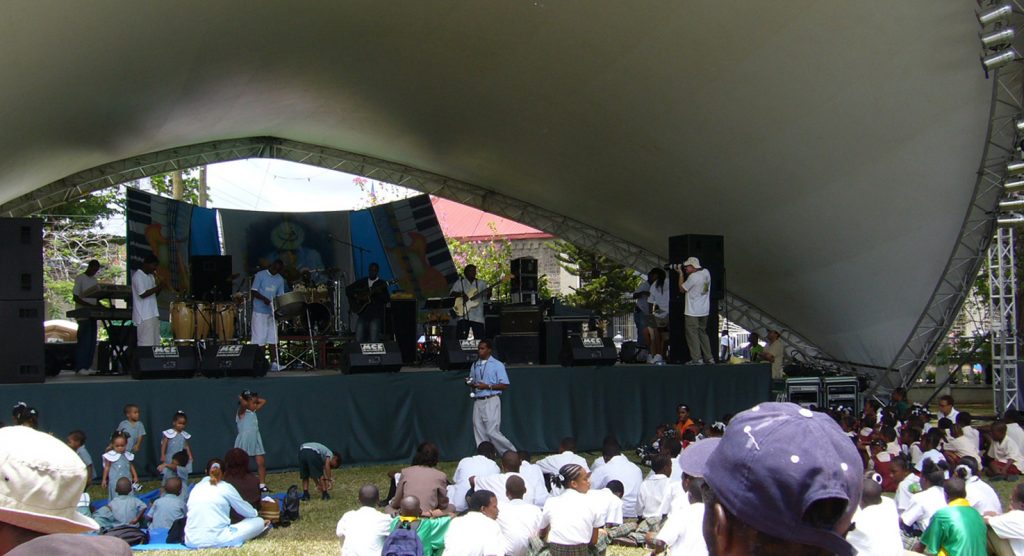
From 12th to 14th May, one of the nation’s biggest music festivals is returning to the island, celebrating jazz music from St Lucia, the Caribbean and beyond. At St Lucia Jazz Festival, you can witness the talent of some of the world’s foremost musicians, including renowned steelpan artist Victor Provost, powerhouse singer Malika Tirolien and even world-famous calypsonian David Rudder. Charmaine Joseph, PR Officer for the festival, explains:
“Saint Lucia as a destination is world renowned for 25 years of excellence hosting the Saint Lucia Jazz and Arts Festival. This preeminent music festival has celebrated the diversity of the Caribbean culture by featuring a variety of international and regional performers in a vibrant atmosphere that is distinctly Saint Lucian.”
“This year we are returning to our roots, with a Saint Lucia Jazz that features quality and authentic Jazz music. Jazz music is perfectly suited for Saint Lucia as it is party rooted in African traditions. These roots will be fully on display as our line-up promises a mixture of contemporary Jazz, legendary Jazz artistes and upcoming Caribbean Jazz performers that will add that unmistakable island flavour to the festival.”
“Saint Lucia Jazz will be the first of six themed events from May till October that are together aptly named Soleil – Saint Lucia Summer Festival and offers events including a Food and Rum festival, Carnival and a celebration of Creole Heritage. Summer 2017 in Saint Lucia is one that certainly should not be missed.”
Head to the National Culture Centre and the Pigeon Island National Landmark to experience the musical magic for yourself.
Rise Up Reggae Festival

If you’re looking to be part of something new and exciting and are visiting St Lucia in the coming months, then you should consider visiting Rise Up Reggae Festival. Jesse from LargeUp is visiting the festival, which will be held on Easter Sunday (16th April) in the scenic town of Soufrière. A one-night-only grassroots event, the festival will feature two of reggae’s biggest stars – Jah Cure and Sizzla Kalonji – performing great music accompanied by delicious Caribbean food.
Jounen Kwéyòl
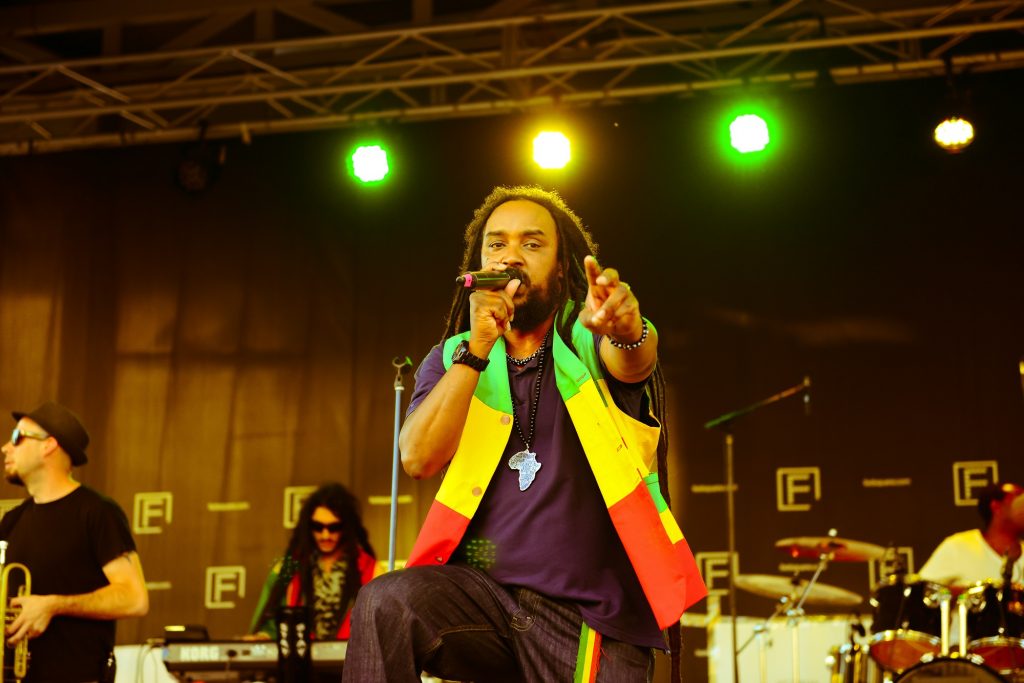
Jounen Kwéyòl is widely known as St Lucia’s biggest cultural festival, occurring each year as a celebration of the French-African dialect that the majority of Lucians speak. Each year, International Creole Day is celebrated by locals with parties on the closest Sunday. On 30th October, 2017’s festival will feature a mixture of creole (kwéyòl) food, music, games and folklore for a truly exciting extravaganza. To celebrate the creole heritage of the country, Lucians wear the traditional colourful Madras in the week leading up to the events, which include everything from a Fèt Kwéyòl party to a sports day. The event is directed by the Folk Research Centre, and is not generally recognised on the tourist calendar of events, so you will have to seek out the events yourself! This year, Gros Islet, Choiseul, Belle Vue and Jacmel are the primary host communities for Creole Heritage Month. So, if you’re indulging the body and mind on a rejuvenating BodyHoliday escape, based in Gros Islet, why not inspire the soul with some amazing tunes?
La Rose and La Marguerite Grand Fetes
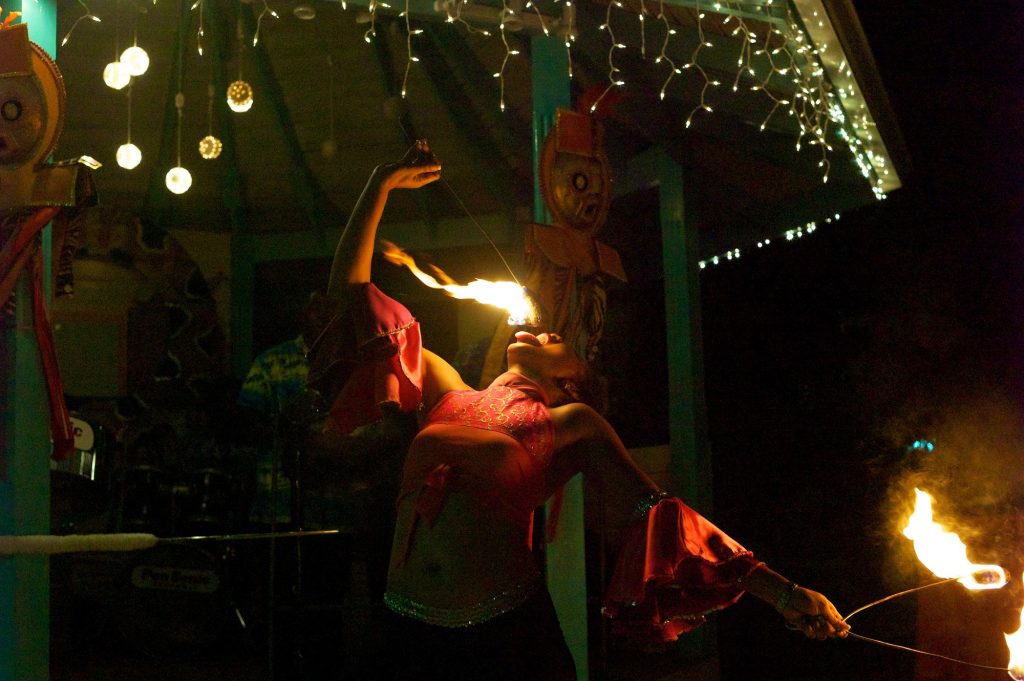
La Rose and La Marguerite were once rival societies that stemmed from Anglo-French occupation of St Lucia. With the factions representing England and France, these were the warring colonial powers between whose hands the country changed fourteen times before it gained independence in 1979. La Rose was originally associated with England, whereas La Marguerite was linked to France. Today, the groups are primarily related to floral connotations and singing associations, but the patron Saint of each faction is still given a feast day upon which their Grande Fete is celebrated.
La Rose Grand Fete is held on 30th August, commemorating the feast day of St. Rose de Lima, while La Marguerite Grand Fete is held on 17th October in honour of St Margaret Mary Alacocque. These celebrations are elaborate and colourful, featuring folk dances such as the kwadril (quadrille), the mappa and the belair. La Rose celebration is characterised by movement, participation, rhythm and exuberance, while La Marguerite is characterised by melody and musical discipline. Both events, however, feature Omans – a form of waltz, marches, and various dance forms. Here you can expect to see traditional instruments such as the tanbouwen (tambourine), baha (wooden trumpet), chak-chak (rattles), guitar and gwaj (scraper) used in traditional songs.
The best places to find music in St Lucia
Whilst Caribbean artists do often play in the tourist hotels, if you want to truly experience the Lucian music scene, you might want to look a little further afield. Jesse describes how, from the moment you step out of the airport in a Caribbean country, you will immediately get a sense of the music scene, as taxis blare out the newest songs from their radios. However, the newest tracks that Lucians themselves are listening to are not always played in tourist areas, so it’s a good idea to ask around with locals as to where the next gigs are taking place. The best time to experience music in St Lucia, Jesse says, is in the summer. This is because summer is the time of Lucian Carnival, which often occurs around the beginning of August. During this time, the streets become abuzz with new songs being played and created around every corner.
Rob ‘Zii’ Taylor explains why the country is such a special place for music, and also for musicians themselves. He says:
“St Lucia has been my home for 30 years so I consider myself a Lucian. The quality of life, friendships and support is amazing. With technology at your fingertips and a beach only five minutes away, I can decide the pace of my day. When you can relax and enjoy life with consistent sunny days around happy people – that is inspiration enough for me to write and record. When I perform in hotels I get the opportunity to share my music with people from all parts of the world and the feedback I always get is so positive and uplifting. They ask, ‘with a talent like this, what are you still doing here?’ ‘Take a look around you’ I say, ‘to be here just for a couple of weeks is most people’s dream. I get to be here for a lifetime.’”
Of course, the only way you can really get a feel for the fantastic music of this beautiful country is to hear it for yourself. Book a holiday to St Lucia today to explore the sounds of St Lucia for yourself!
Image credits: Lionell Charles (Wikimedia Commons) / Bikeworldtravel (Wikimedia Commons) / Tobias Schenk (Shutterstock) / Addy Cameron-Huff (Flickr) / Chensiyuan (Wikimedia Commons) / Ras Jahknow Band (Flickr) / Jon Callas (Flickr)
// ]]>



Leave a Reply
You must be logged in to post a comment.